For many, a visit to the fly shop before heading out on the water has become routine. You pick up some flies, grab a new spool of tippet and maybe cast that new rod you've been pining for. Most importantly, you stop to get the information that will make your day on the water a success.
Simply relying on the hatch chart in your dad’s guide book from 1982 isn’t going to cut it. Weather conditions vary and stream dynamics change from year to year. Getting local intel can often be a necessity when fishing water you are unfamiliar with.
Many anglers seem to think that the only important question to ask is what the hot fly is. In truth, advice from locals on not only what patterns to use but on which, how, where and when you should be fishing them are often equally or even more vital to success.
The important thing is to make the most of your routine visit to the fly shop.
Be honest
Be open and honest about your skill level. Asking only about what’s hatching or what fly to use might often lead you down the wrong path. Sure, size 22 BWOs might be hatching and maybe be many an angler's goto fly for the day, but if you can’t present them with a delicate reach cast at 30 or 40 feet, you’re not going to score.
Bobbing along some nymphs or swinging a wooly bugger gives you considerably more room for error and greater chances for success than trying to properly deliver a size 22 on a 12 foot long, 6x leader.
Be honest about your abilities as a fly-angler and trust the shop to help choose flies that will work best for your skill level and put the odds in your favor.
Ask informed questions
Generally speaking most fly shop guys aren’t going to up and give you the GPS coordinates to the best hole in the creek. If you’re simply asking for general advice, a target area and what to expect when you get there is the sort of info you’re going to get.
Commonly, fly fishermen looking for specifics think that guys at shops are withholding information, but the fact is we’re not. But you've got to ask the right questions to get the right answers.
Typically, this simply comes down to asking informed questions, questions grounded in relevant information. Often, where you plan to fish and when will usually be enough info for a shop guy to give you the scoop.
We both want and need you to be a successful angler, and withholding information or giving bad advice to customers is a sure fire way to never have them come back.
Asking some along the lines of “Hey, I’m heading up to Benner Spring late this afternoon. What’s doing there?” should produce a response along the lines of “Oh, we’ve been seeing size 14 sulphurs in pale yellow. The hatch usually starts around 7:30-8:00 and keep your good eye open for spinners around dark.”
Don't be intimidated
Most of us have, at one point or another, been in a shop where the friendliest interaction you have with the guys working behind the counter might be a grunt aimed in your direction. Those are the shops that don't last long.
If you’ve never nymph fished before, don’t be embarrassed to admit that you’d like some help getting set up. Sure the guys at the shop are “pros” (I use that term lightly), but we want to help you out. Plus, it’s our job. You may be an amateur compared to the shop bums, but remember that we were all there once and can all relate to how difficult it can be to get to the point where you’ve gotten enough confidence to fish without picking someone else’s brain. Be forthcoming and ask for the advice you need, we want to give it to you.
Get what you came for
In some ways this is a continuation of the previous bit, but if the questions you’ve asked and information you’ve provided hasn’t left you ready to leave the shop feeling confident about your game plan for the day — say so.
The fact that you don’t feel like you’ve gotten what you came for could come down to the fact that you’re dealing with a cranky or uninformed shop employee, making it unlilely that you’ll get much more the second time around. But, more often it is simply the result of miscommunication, so don't leave with your tail between your legs and shrug your shoulders to your buddy that’s waiting in the car.
Let the shop know you'd like more help or more information, because you’re the customer and the job of the staff at the shop is not just to sell you flies and rods and waders, but to represent their local waters and provide guidance on fishing them — at least if you’re standing in a good shop.




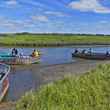
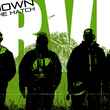

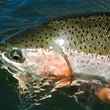
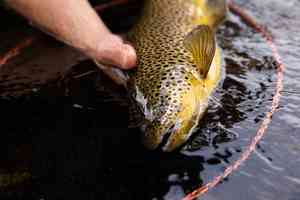

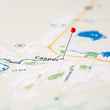
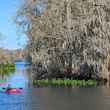

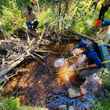





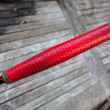




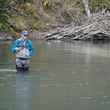






Comments
bakewell fly fishing replied on Permalink
Wise words!
Pages